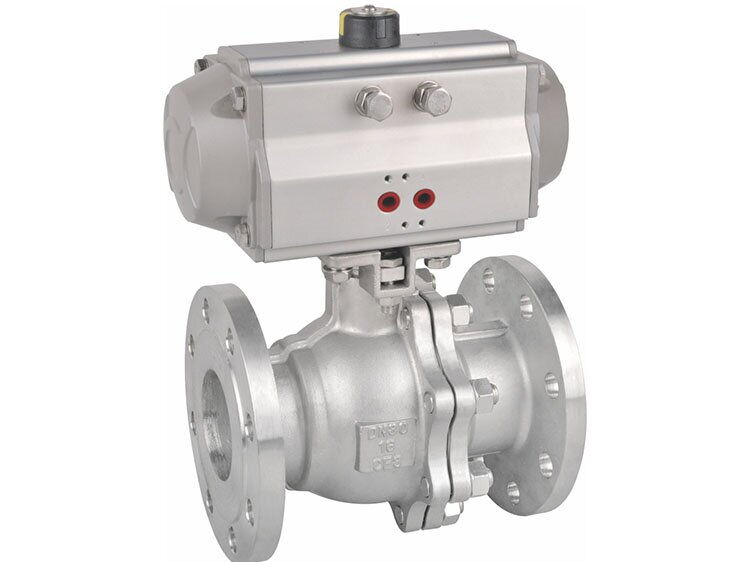Understanding Pneumatic Ball Control Valves
On this page
Pneumatic ball control valves play a crucial role in various industrial systems, utilizing a pneumatic actuator to manipulate a ball-shaped disc within the valve body. These valves are specifically designed to regulate fluid flow by rotating the ball to open, close, or modulate the flow passage. They come in different types, each suited to specific applications and conditions. This article explores the types, features, and advantages of pneumatic ball control valves, as well as their applications in different industries.

As industries continue to demand high-performance and reliable solutions, pneumatic ball control valves will remain a critical element in the advancement of fluid control technology. Their versatility and robust design will continue to support the efficient operation of complex industrial systems, driving innovation and enhancing productivity across various sectors.

Pneumatic Ball Control Valve
Floating ball valves have a ball that floats between the valve seats, allowing the ball to move freely when the valve is open or closed. These valves provide a tight shut-off and are suitable for applications requiring bi-directional flow control. The floating design ensures that the ball remains securely in place, creating an effective seal against the valve seats to prevent leaks. This makes them ideal for low to medium-pressure applications.
Trunnion-mounted ball valves feature additional support from trunnions or bearings, which reduce operating torque and enhance sealing performance. The trunnion design provides stability to the ball, making these valves suitable for high-pressure or high-temperature conditions. The trunnions hold the ball in place, allowing it to move with minimal friction and ensuring reliable operation in demanding environments.
Pneumatic ball control valves offer accurate control over fluid flow, making them ideal for applications that require precise regulation of flow rates.
These valves respond rapidly to changes in actuator pressure, enabling quick adjustments to flow conditions and ensuring efficient system performance.
Made from robust materials, pneumatic ball control valves are designed to withstand harsh industrial conditions, including high pressure and temperature variations.
The design of these valves allows for bi-directional flow control, providing flexibility in various piping configurations and systems.
The floating and trunnion-mounted designs reduce the torque required to operate the valve, minimizing wear and tear on the actuator and extending the valve's lifespan.
These valves provide an effective seal, preventing leaks and ensuring the integrity of the fluid control system.
Pneumatic ball control valves are widely used in numerous industries due to their versatility and reliability. Some common applications include:
In the oil and gas industry, pneumatic ball control valves are used to regulate the flow of hydrocarbons, control pressure levels, and ensure safe operation of pipelines and processing facilities. Their ability to handle high-pressure and high-temperature conditions makes them suitable for upstream, midstream, and downstream applications.
In petrochemical plants, these valves control the flow of various chemicals and gases, ensuring precise regulation of process conditions. Their robust construction and tight shut-off capabilities are essential for maintaining safety and efficiency in complex chemical processes.
Pneumatic ball control valves are used in water treatment plants to manage the flow of water and wastewater, control chemical dosing, and isolate sections of the treatment system. Their quick response and precise control contribute to the effective treatment and distribution of water.
In heating, ventilation, and air conditioning (HVAC) systems, these valves regulate the flow of air and fluids to maintain optimal indoor environmental conditions. They ensure efficient operation of heating and cooling systems by providing accurate control over temperature and humidity levels.
Pneumatic ball control valves are essential components in a wide range of industrial applications. Their ability to provide precise flow control, quick response, and reliable operation makes them invaluable in sectors such as oil and gas, petrochemicals, water treatment, and HVAC. By understanding the different types and key features of these valves, industries can select the most suitable valve for their specific needs, ensuring efficient and safe operation of their fluid control systems.As industries continue to demand high-performance and reliable solutions, pneumatic ball control valves will remain a critical element in the advancement of fluid control technology. Their versatility and robust design will continue to support the efficient operation of complex industrial systems, driving innovation and enhancing productivity across various sectors.

